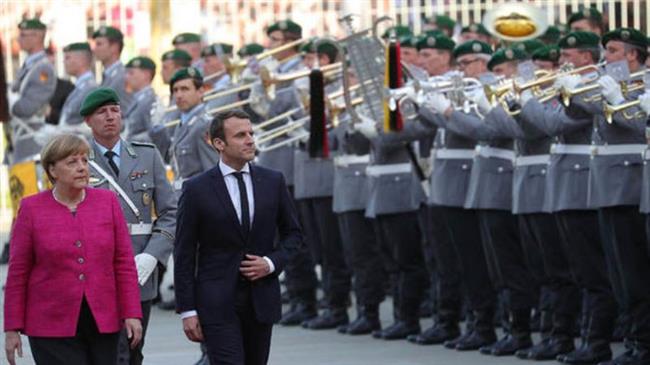16, October 2019
Message to Ambazonia: Catalonians begin 100km ‘freedom march’ to Barcelona 0
In a straw hat and hiking boots, Jordi Soler set out from Girona with thousands of others on a 100-kilometre (60-mile) “freedom march” after Spain jailed nine Catalan separatist leaders.
“This is to show that we can bring Catalonia to a halt… to show that Madrid must do something because if not, it will soon be out of its hands,” warned the 25-year-old doctoral student.
With a Catalan separatist flag tied to his rucksack, he set off down the road among an endless line of marchers, from youngsters to pensioners, all of them protesting Monday’s Supreme Court verdict which handed nine Catalan leaders heavy prison terms for their role in the failed 2017 independence bid.
Following two days of mass protests, which at times turned violent, separatist activists on Wednesday organised five regional marches to Barcelona which are expected to reach the city by Friday.
The mass deployment down miles and miles of roads and highways is aimed at causing transport chaos in one of Spain’s most important economic regions, which is also a bottleneck for traffic moving between Spain and France, and the rest of Europe.
Organisers say some 10,000 people turned out for the start of the marches, with the biggest in separatist stronghold Girona, the hometown of former Catalan president Carles Puigdemont, who fled to Belgium to escape prosecution for his role in the crisis.
On a chilly morning barely warmed by the autumn sun, the crowds rallied in the town’s October 1 square renamed in honour of the date of the contentious referendum, which was banned by Madrid and marred by police violence.
And by 9:00 am (0700 GMT), they were on their way, setting out on a 100-kilometre journey to the Catalan capital that will take them through the verdant hilly countryside of Girona to the sandy plains of the Mediterranean coast.
– Independence struggle as ‘TV series’ –
Some will walk the entire way. Others will complete only part of it. With many passing cars honking their support, the march got under way in a festive atmosphere, moving aside only to allow the passage of ambulances or other emergency vehicles.
“It’s all very peaceful and that’s good… even if sometimes you have to more forceful,” Soler grins, in a nod to the overnight clashes in Barcelona.
When the independence movement began to gain momentum, he was just 18. Ensconced in leftwing Catalan circles, his involvement in the separatist movement came naturally, he says.
After seven years of demonstrations, protests and votes for independence, none of which had any effect, Soler admits feeling “a little worn out” by the struggle.
But he won’t give up.
“It’s like a TV series. You’ve watched seven seasons and the eight is rubbish, but you still watch it because you’ve come so far and hopefully it will have a good ending,” he explains.
The marches were organised by ANC and Omnium, the region’s two biggest grassroots pro-independence groups that have organised some of the largest separatist protests in recent years.
And both groups have been directly impacted by the verdict, with Omnium head Jordi Cuixart, and Jordi Sanchez, who headed the ANC during the 2017 independence bid, both sentenced to nine years behind bars.
– ‘I’m in a hurry’ –
The peaceful marches stood in stark contrast with the tense protests of recent days, led by activist groups like the radical CDR (Committees for the Defence of the Republic) or Democratic Tsunami, who brought 10,000 people to Barcelona airport, cutting off transport links and prompting the cancellation of more than 100 flights.
“These marches… show the best of the Catalan people,” said regional president Quim Torra, who joined the march as it set out from Girona.
After two hours, with the sun much higher in the sky, the tiredness began to show.
“I’m going to stop soon. I’m not a spring chicken any more,” admitted 74-year-old Maria Pilar Collell.
Disappointed with the regional leaders, who for the past two years have been divided over how to push ahead, this elderly protester who learned Catalan in secret during Franco’s dictatorship, when it was banned, is hoping she’ll live to see the day when Catalonia is an independent nation.
“The politicians keep telling us to be patient,” she told AFP.
“But I’m in a hurry, I’m not 20 any more!”
Source: AFP


























17, October 2019
Brexit: UK, EU clinch deal 0
Britain and the European Union (EU) have agreed on a long-awaited Brexit deal just a few hours before a meeting of the bloc’s leaders in Brussels.
European Commission President Jean-Claude Juncker made the announcement in a statement on Thursday, saying that the deal on Britain’s withdrawal from the EU was a “fair and balanced agreement.”
Juncker said he would recommend that the leaders of the other 27 member states approve the deal, adding it was “high time” to complete the divorce process and move on as swiftly as possible to negotiations of the EU’s future partnership with Britain.